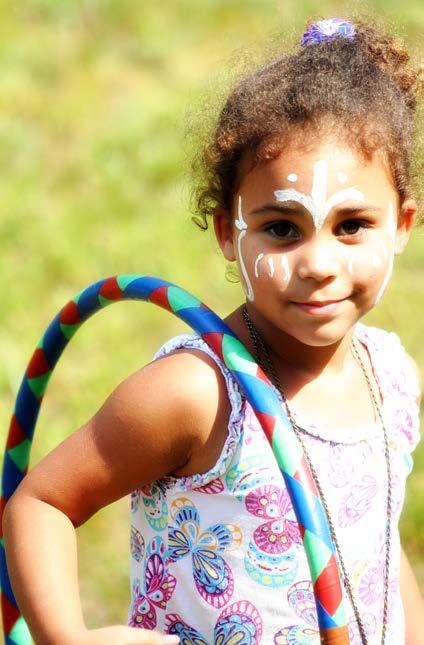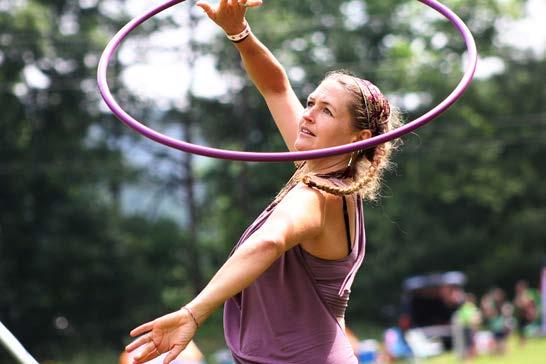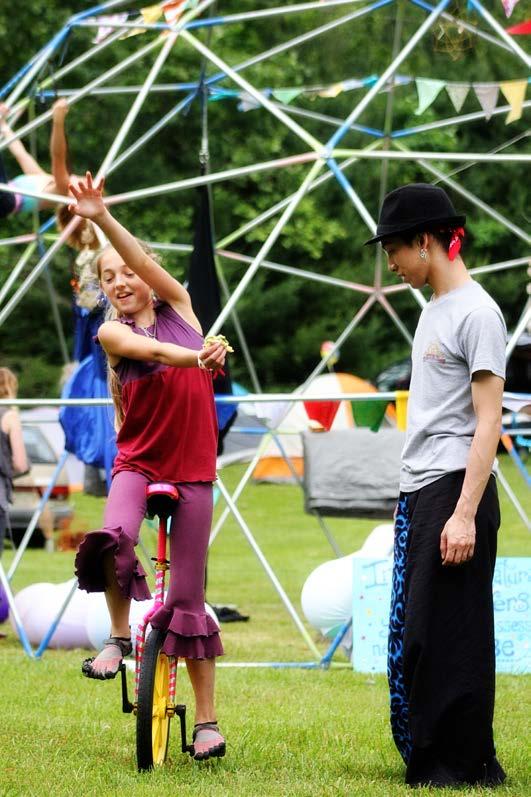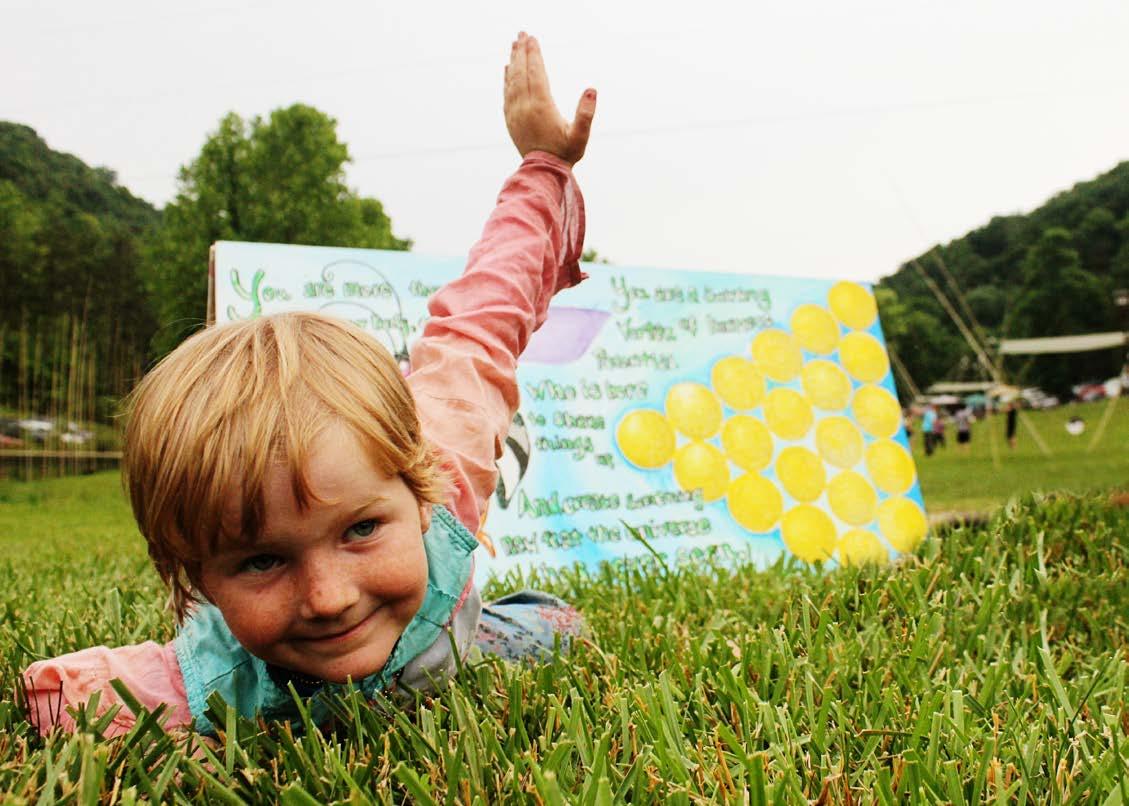
4 minute read
Play With Purpose
By Clay Lester
Erica Chambers, Photographer
Appalachia is home to a dizzying array of local festivals dedicated to the celebration of indigenous sources of pride and pleasure, from homemade crafts and culinary staples to mountain music and natural wonders. Often a little offbeat and slightly quirky, the personality of these festivals tends to reflect the homegrown charm of the tightly knit communities from which they emerged. While many of these festivals have such a storied and mythological past they seem to have existed since the dawn of humanity, others have very recent and practical roots in the desire to attract commerce and exposure to local artisans and artifacts. And then there is the PlayThink Movement & Flow Arts Festival, a four-day celebration so unusual and unexpected that it could only have arisen from the fertile creative soil of Appalachia.
For a few days each June, hundreds of pilgrims from across the country, representing all ages and walks of life, descend upon the tiny HomeGrown HideAways farm (located just outside Berea, KY) to engage in a family friendly community of movement, music, art, sustainability, and performance. Workshops led by nationally recognized experts in a seemingly endless list of “flow” arts, including yoga, hula-hoops, aerials, fire dancing, and unicycling, are offered with the intent of empowering participants emotionally, physically, and mentally. The main reason folks attend the festival, however, is for the opportunity to simply play.
“I wanted to create an environment where we can be a playful but conscientious community toward others,” explains Paige Hankla, the festival’s creator, organizer, and most passionate advocate.
Hankla, an administrative specialist with the Kentucky Department of Aviation, conceived the idea of a local movement festival in January of 2012 and six months later that dream was reality.
“When I started PlayThink I didn’t know exactly what I wanted it to become, but I knew that I wanted to harbor a new definition of “flow” and create a new kind of festival that I would feel comfortable attending. I wanted it to be family friendly and community oriented, with a focus on creating a safe space where everyone feels welcomed,” Paige explains.
Probably an unfamiliar term to those uninitiated to it, the concept of “flow” springs from and informs a number of movement-based activities with which it is commonly associated (yoga, poi, hoops, dance, etc.), but it is hardly limited to these disciplines and activities. Hankla describes it as a type of meditative or contemplative state that most people probably already experience in the activities of their lives, such as shooting a basketball, painting a picture, working in your garden for hours, or even during extended periods of prayer—though you probably call it by another name. Phrases like “in the zone,” “on a roll,” and “in the groove” are more widely used expressions for the idea of flow, but they all imply the same thing; flow is just anytime you are so focused you forget everything else and simply exist in the present.
Although the largest cross-section of attendees are in their 20s and 30s, PlayThink is defined by its inclusivity and celebration of all generations. According to Hankla, the youngest attendee at last year’s festival was 4 months old and the oldest was 94. Of course at a gathering so intentionally focused on play, children not only experience the fun of running around in an open field with bubbles and hoops and obstacle courses and clowning, but they naturally serve as the de facto embodiment of the power of play to their older counterparts. Some children even serve as instructors for their own workshops, which is both empowering to them and provides adults the opportunity to truly be led by a child.
Likewise, participants on the other end of life’s spectrum add valuable perspective to the makeshift community and are sometimes surprised by how much they take away from the experience. Winnie, a clowning instructor in her late 60s, sent Hankla an email following her first festival to express how included she felt. Winnie said she never realized she could have so much fun in such a diverse space and feel that comfortable.
“When people get older they can sometimes feel like they can’t go out, or have fun, or move in a the manner that maybe a 20 year old can and it’s intimidating and scary. This is a place where you’re going to be completely welcomed. You’re going to be brought in and hugged and become part of our community,” Hankla says.
As Appalachian festivals go, PlayThink is something different. It is a patchwork of passions and influences converging for the purpose of creating a new kind of community built on hospitality, the open exchange of new ideas, and, of course, play. Paige’s affection for play as a means to growth and transformation is based on the reality that play is largely the method by which people learn everything as infants. She believes it can continue to inform growth throughout one’s lifetime, providing a positive way to engage the world.
For more information on the PlayThink Movement and Flow Arts Festival you can visit www.playthinkfest.com
















